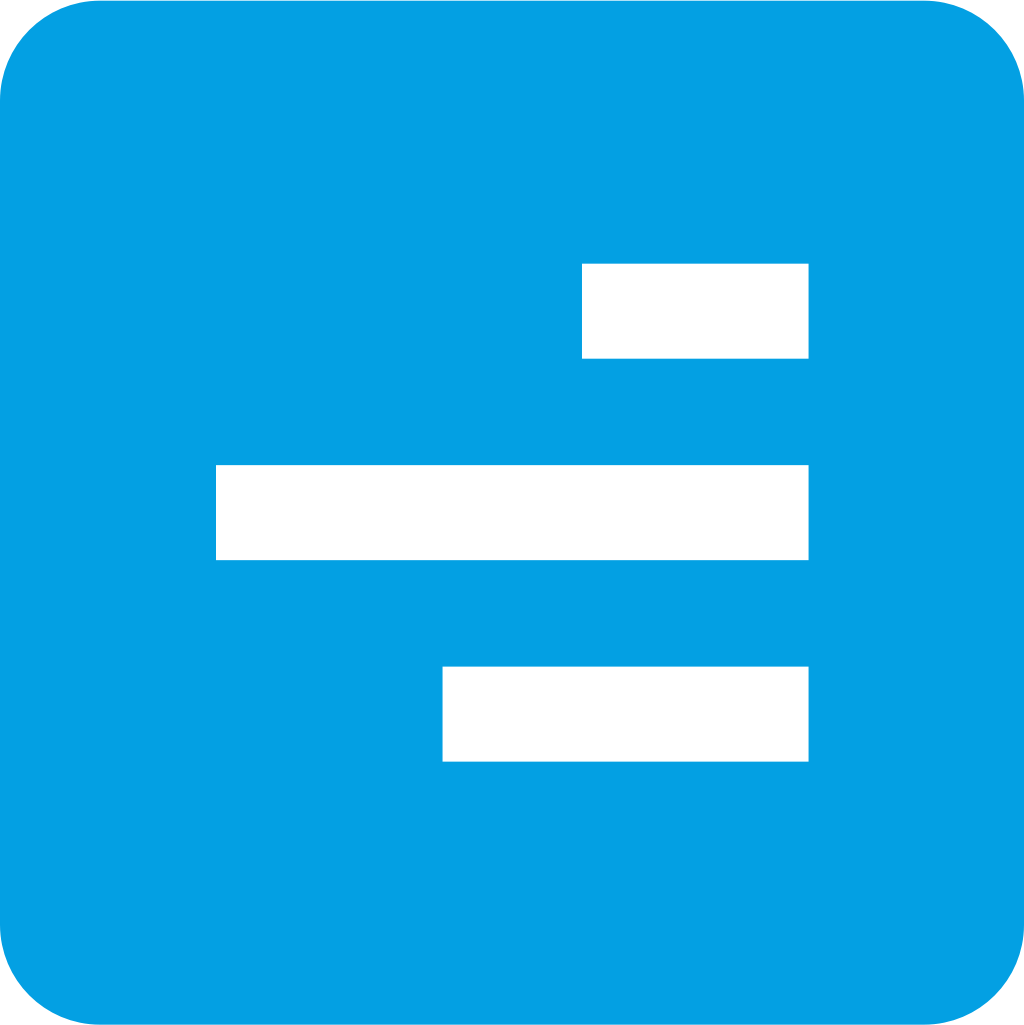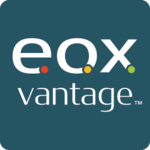Description

Zarafa

Unily
Comprehensive Overview: Zarafa vs Unily
Zarafa
a) Primary Functions and Target Markets: Zarafa was an open-source groupware application that provided email and collaboration services similar to Microsoft Exchange. Its primary functions included email hosting, calendar management, contact sharing, and integration with various mail clients via standard protocols like IMAP and POP3. Additionally, it offered web-based access to email, calendaring, and contacts, akin to Outlook Web Access.
Zarafa's target markets were primarily organizations looking for an open-source alternative to Microsoft Exchange, particularly those in Europe where open-source solutions are often preferred for privacy and customization reasons. Enterprises, educational institutions, and government agencies seeking to reduce costs linked with proprietary software licensing were also key markets.
b) Market Share and User Base: Zarafa held a niche market presence compared to larger players like Microsoft Exchange and Google Workspace. Market share specifics were not as well documented due to its open-source nature and smaller footprint, but it was popular among tech-savvy organizations that valued open-source software. Its user base consisted primarily of businesses and organizations comfortable with managing open-source solutions and those looking for Microsoft Exchange alternatives without vendor lock-in.
c) Key Differentiating Factors:
- Open Source: One of its main selling points was its open-source nature, allowing users to customize and extend functionalities while avoiding reliance on a single vendor.
- Cost-Effectiveness: Zarafa often presented a more budget-friendly option compared to proprietary alternatives, with many organizations attracted by lower total cost of ownership.
- Integration Capabilities: It provided robust integration options with Microsoft Outlook, facilitating easier transition for users accustomed to Microsoft Office environments.
- European Market Focus: Zarafa had a strong presence in the European market, where open-source software aligns with data privacy and security norms favored by local regulations.
Unily
a) Primary Functions and Target Markets: Unily is a leading enterprise intranet platform designed to enhance internal communications and streamline collaboration across organizations. Its primary functions include an employee engagement platform with features for content management, social networking, document storage, and integration capabilities with enterprise tools like Microsoft 365 and Google Workspace.
Unily's target markets are large and medium-sized enterprises looking to improve internal communication and employee engagement. This includes sectors like finance, healthcare, retail, and technology, where workforce collaboration and communication are key to operational success.
b) Market Share and User Base: Unily is recognized as a prominent player in the digital workplace and enterprise intranet market. While smaller than giants like Microsoft 365, Unily has carved a significant niche, especially in industries where sophisticated internal collaboration and engagement tools are paramount. Its user base comprises some of the world's largest and most influential companies seeking tailored intranet solutions.
c) Key Differentiating Factors:
- User Experience: Unily places high emphasis on user experience, offering a visually appealing, intuitive platform that requires minimal training.
- Customization and Flexibility: Offers extensive customization options to tailor the platform to an organization's specific needs, integrating seamlessly with existing enterprise technologies.
- Focus on Engagement and Communication: Prioritizes tools to enhance employee engagement and connectivity, from social hubs to personalized content delivery.
- Strong Analytics Capabilities: Includes powerful analytics to provide insights into employee engagement and platform usage.
- Global Reach and Support: Unily has a global support network, making it suitable for multinational corporations needing consistent communication tools across regions.
Comparison and Contrast
- Target Audience: Zarafa was more focused on organizations interested in open-source email solutions, while Unily targets enterprises looking for comprehensive internal communication platforms.
- Functionality: Zarafa was centered around email and calendar groupware, whereas Unily provides a broader intranet experience focused on engagement and content management.
- Market Presence: Unily has a more prominent standing in the enterprise space compared to Zarafa’s more niche user base within the open-source community.
- Customization: Both offer customization, but while Zarafa encouraged open-source alterations, Unily provides customization within a user-friendly interface without requiring extensive technical changes.
- User Engagement: Unily's platform is designed to foster interaction and community within employees, which is a newer trend compared to the legacy email-centric focus of Zarafa.
Contact Info

Year founded :
Not Available
Not Available
Not Available
Netherlands
Not Available

Year founded :
2005
Not Available
Not Available
United Kingdom
Not Available
Feature Similarity Breakdown: Zarafa, Unily
As of my last update, Zarafa and Unily are products that serve different purposes and have distinct features. Zarafa was primarily known for being an open-source groupware application suite that offered functionalities similar to Microsoft Exchange, while Unily is a digital workplace platform that focuses on employee engagement, communication, and collaboration. Here's a breakdown of their feature similarities and differences:
a) Core Features in Common
-
Email Communication:
- Zarafa had strong email capabilities similar to Microsoft Exchange, including email management, calendars, and contacts.
- Unily, while not primarily an email platform, supports email notifications and alerts as part of its communication tools.
-
Calendar and Scheduling:
- Both solutions offer calendar functions, although this is more central to Zarafa's functionality.
-
Collaboration Tools:
- They provide features that support collaboration like file sharing (Zarafa through email and Unily through its platform).
-
Integration Capabilities:
- Both platforms support integrations to extend functionality, though the specifics differ due to their core purposes.
b) User Interface Comparison
-
Zarafa:
- The user interface of Zarafa was designed to mimic Outlook Web Access for ease of transition for Exchange users. It was efficient for managing emails, calendars, and contacts but followed the traditional layout of email clients.
- Typically, open-source applications have a less polished UI compared to commercial products, pending community contributions.
-
Unily:
- Unily focuses on a modern, intuitive, and visually appealing user interface designed to engage employees. It features customizable dashboards, drag-and-drop editing, and responsive design to work across devices.
- The UI is designed to enhance user experience for intranet functionalities, such as employee profiles, social capabilities, and personalized content delivery.
c) Unique Features
- Zarafa:
- Open Source: Being open-source, Zarafa allowed extensive customization and deployment flexibility, which appealed to organizations looking for an alternative to Microsoft Exchange.
- Outlook Compatibility: It offered seamless compatibility with Outlook, giving users similar experiences while reducing reliance on Microsoft servers.
- Unily:
- Digital Workplace Platform: Unily goes beyond traditional communication and offers a comprehensive suite for employee engagement, including social feeds, mobile access, and persona targeting.
- Personalization and Analytics: It provides robust analytics and personalization options, enabling organizations to tailor content and measure engagement effectively.
- Integrated Social features: Unily incorporates social interaction features that make workplace communication more engaging and collaborative.
Note: Zarafa was succeeded by Kopano around 2016, so current comparisons might involve Kopano versus Unily unless discussing historical use cases. Always check with the latest product details as features can evolve over time.
Features

Not Available

Not Available
Best Fit Use Cases: Zarafa, Unily
Zarafa and Unily are solutions designed to meet different communication and collaboration needs within organizations. Here's a breakdown of their best fit use cases and how they cater to various industries and company sizes:
a) Zarafa
Use Cases for Zarafa:
-
Businesses Seeking Email Collaboration: Zarafa is primarily known as an open-source email and collaboration platform. It is particularly well-suited for organizations that need a reliable alternative to proprietary solutions like Microsoft Exchange. Companies that prioritize email collaboration, calendaring, and scheduling in an integrated suite may find Zarafa appealing.
-
IT Departments Valuing Customizability: Zarafa is ideal for IT departments looking for a customizable, open-source solution. Companies with in-house technical expertise can leverage Zarafa's flexibility to tailor the platform to fit specific organizational needs.
-
Budget-Conscious Organizations: Small to medium-sized enterprises (SMEs) or non-profit organizations looking to reduce costs associated with email and collaboration software can benefit from Zarafa as it offers open-source licensing and a lower total cost of ownership.
b) Unily
Use Cases for Unily:
-
Enterprises Needing a Digital Workplace: Unily is a leading digital workplace platform designed for enterprise-level organizations that need to enhance internal communication, collaboration, and employee engagement across distributed teams.
-
Companies Focused on Employee Experience: Unily is ideal for businesses prioritizing employee experience and engagement. It seamlessly integrates intranet, collaboration tools, and employee engagement features, making it suitable for businesses aiming to foster a connected and engaged workforce.
-
Organizations Requiring Rapid Deployment: Companies that need to implement a full-featured intranet solution quickly and with minimal disruption often choose Unily. Its cloud-based delivery ensures ease of deployment and scalability.
-
Businesses with Diverse Communication Needs: Unily supports diverse communication scenarios within a company, including top-down communication, social networking, knowledge management, and content management, making it versatile across different organizational structures.
d) Catering to Different Industry Verticals or Company Sizes:
Zarafa:
-
Industry Verticals: Zarafa can be particularly valuable for sectors that require high-security communications (such as government, education, and healthcare) due to its open-source nature and potential for customization to meet regulatory requirements.
-
Company Sizes: While Zarafa can scale, its fit is usually stronger in SMEs where cost-effectiveness and flexibility are key drivers, especially in scenarios where the organization has the technical resources to manage and customize the software.
Unily:
-
Industry Verticals: Unily caters to a broad range of industries including finance, retail, healthcare, and manufacturing, providing tailored solutions for each through customizable intranet features that support industry-specific needs.
-
Company Sizes: Primarily focused on large enterprises due to its comprehensive features, Unily scales well in environments where managing complex communication and collaboration needs is crucial. However, it is also suitable for fast-growing mid-sized companies that anticipate scaling and require robust digital workplace capabilities.
In conclusion, Zarafa and Unily cater to different organizational needs and contexts. Zarafa is best for those seeking a customizable, cost-effective email and collaboration solution, while Unily is suited for enterprises looking to implement a sophisticated digital workplace to enhance communication and engagement.
Pricing

Pricing Not Available

Pricing Not Available
Metrics History
Metrics History
Comparing undefined across companies
Conclusion & Final Verdict: Zarafa vs Unily
To provide a comprehensive conclusion and final verdict for comparing Zarafa and Unily, let's address each point in detail:
a) Best Overall Value
Best Overall Value When determining the best overall value between Zarafa and Unily, it’s crucial to consider factors such as cost, features, scalability, user experience, and support.
-
Zarafa: Known historically as a collaboration software that integrates well with existing systems and offers cost-effective solutions, particularly for businesses looking to implement open source solutions. Its value is apparent in scenarios where seamless integration with Linux-based infrastructures is needed at a lower cost.
-
Unily: Positioned as a cutting-edge digital workplace platform, Unily provides extensive features, notably in areas relating to internal communications, employee engagement, and collaborative tools. Its cloud-based approach allows for scalability and constant updates, making it a strong contender for organizations aiming for modern, comprehensive intranet solutions.
Verdict: Unily generally offers better overall value for large enterprises seeking a feature-rich, scalable digital workplace platform. For companies requiring specialized Linux integration at a lower cost, Zarafa might still hold specific economic benefits.
b) Pros and Cons
Zarafa
-
Pros:
- Cost-effective, especially compared to larger enterprise solutions.
- Open-source nature provides flexibility for customizations.
- Strong integration with Linux-based environments.
-
Cons:
- Limited when compared to modern platforms in terms of scalability and features.
- May require more in-house technical expertise to maintain and customize.
- Slower release cycle for updates and new features.
Unily
-
Pros:
- Wide array of features for collaboration and employee engagement.
- Highly scalable and frequently updated, keeping pace with digital transformation trends.
- Intuitive user interface, fostering better user adoption.
- Comprehensive support and customer service.
-
Cons:
- Higher cost compared to open-source solutions like Zarafa.
- Can be overwhelming for smaller businesses with simpler requirements.
- Relatively higher dependency on internet connectivity and subscription model.
c) Recommendations for Users
Recommendations
-
Size and Needs of the Organization: Smaller businesses or those with specific Linux-based infrastructure needs might find Zarafa suits their cost-driven and specific integration requirements. Larger enterprises or those focusing on a cloud-first strategy would benefit more from Unily’s modern features and scalability.
-
Budget Considerations: If budget constraints are a critical factor, Zarafa can provide fundamental collaboration functionalities at a lower cost. However, if budget permits, investing in Unily could yield a higher ROI through enhanced productivity and employee engagement.
-
Technical Capabilities: Organizations with robust in-house IT teams capable of managing and customizing open-source platforms might lean towards Zarafa. In contrast, those seeking ease of use and comprehensive support should consider Unily.
-
Future Growth and Scalability: For companies preparing for digital transformation and future expansion, Unily offers a future-proof platform that can scale with business growth.
In conclusion, the choice between Zarafa and Unily should align with the company’s specific needs, resources, and long-term digital strategy. While Zarafa might suit those requiring cost-effective, Linux-friendly solutions, Unily presents a more holistic solution for organizations prioritizing innovation, engagement, and flexibility.
Add to compare
Add similar companies




